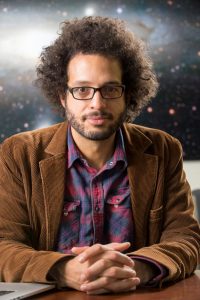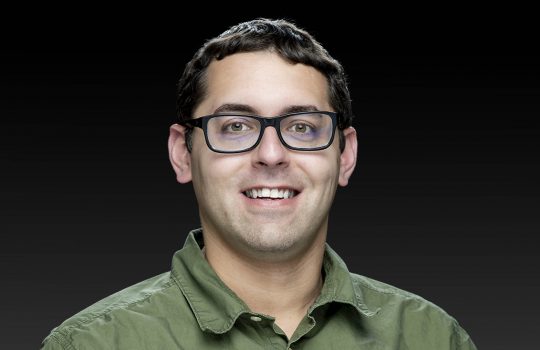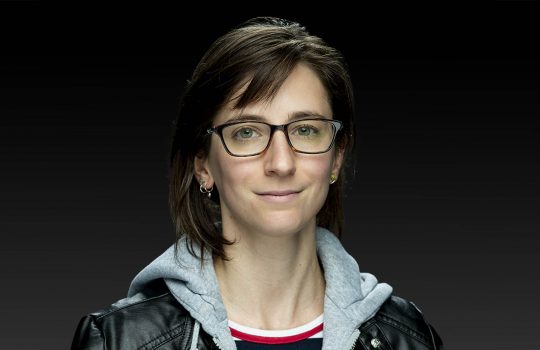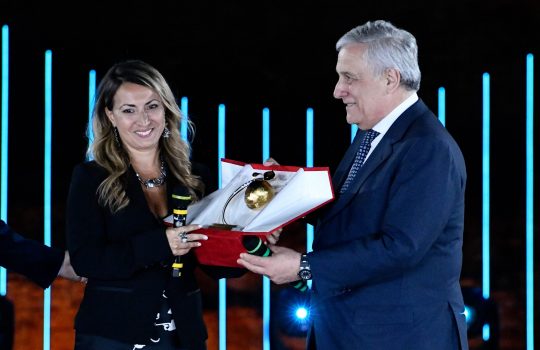Over the past century, cosmology has quickly progressed, using scientists’ observations and data analysis to explain the formation, evolution and future of the universe. Relying on traditional statistical methods, scientists have studied surveys of galaxies and cosmic microwave background to learn about the fundamental physics of cosmic acceleration and dark matter. Now add artificial intelligence, or AI, to the equation. Fermilab scientist Brian Nord has envisioned a new hybrid data-analysis method. It integrates both the strengths of machine learning and the interpretations of statistics. His new method could potentially advance how scientists approach cosmology.
As a cosmologist, Nord considered years ago that the time-intensive task of inspecting vast droves of astronomical images may be better suited to machines than humans. “But then I realized we don’t know if we can trust those machines to give us an accurate description of the cosmos,” he said.
To study this quandary, Nord knew he would need additional resources. He presented his vision to the U.S. Department of Energy and received a DOE Early Career Research Award this summer. The award, now in its 12th year, aims to support the nation’s scientific workforce. It funds exceptional researchers at a point in their career when many scientists do their most formative work. Over five years, the award will grant $2.5 million in research funding. In Nord’s case, it will provide the opportunity to develop and deploy AI-enabled statistical tools to analyze data acquired in cosmic survey experiments. “By combining these two methods, we can improve both the accuracy and precision of our models of the universe, and maybe discover something new about it,” Nord said.
The project is set to start later this summer. Nord plans to bring in postdocs and AI experts to form the core development team. Their first step will be to test and compare existing AI-enabled statistical modeling algorithms for detecting objects, such as strong gravitational lenses, in simulated data sets. Then, they’ll focus on characterizing these objects by measuring features like brightness and mass.
Later, by combining data from the Dark Energy Survey, the South Pole Telescope and eventually the Rubin Observatory’s Legacy Survey of Space and Time, Nord’s project aims to produce new measurements of cosmic acceleration. To do so, it will use data from both early in the universe (the cosmic microwave background) and from late in the universe (optical imaging data).
Now a member of Fermilab’s AI Project Office and Cosmic Frontier Center, Nord began studying strong gravitational lensing at Fermilab in 2013. He soon recognized AI as a tool that could drastically cut short the painstaking human visual inspection typically required to find these rare objects. Early on, he also saw that these tools are easily biased when they learn from biased data. In addition, there isn’t yet a way to know how precise the AI models are, as estimating error bars in AI remains an unsolved problem.
To address these issues, Nord plans to use and build on a technique called “simulation-based inference,” which is a sophisticated form of guess-and-check: “We simulate the observed universe with different physical models until the simulated data matches the data from our instruments. Then we know that our physical models can explain the real universe.” With this method, AI is used to speed up the comparison between real and simulated data.
“Brian Nord is Fermilab’s leader in finding new ways to use artificial intelligence for cosmology and astrophysics. He is very well respected in the astrophysics and cosmology communities and viewed as a true visionary,” said James Amundson, head of the Scientific Computing Division.
Many AI applications in particle physics and cosmology have shown that data-driven modeling tools can often dramatically increase the speed of analyses. In addition, they have a capacity to find important information and features in data that have been elusive for human-driven or physics-inspired modeling. “The universe is growing ever-faster. To study it, we use increasingly complex instruments that collect exorbitantly large amounts of data, which contain extremely small clues. To understand cosmic acceleration, we’ll need all the tools like AI that we can get our hands on and that we can wield responsibly,” said Nord.
Nord is a CASE scientist in the Department of Astronomy and Astrophysics and a senior member of the Kavli Institute for Cosmological Physics at the University of Chicago where he also conducts his AI and cosmology research. He co-founded and is now the director of the Deep Skies Lab, which joins experts in AI and in cosmology to advance our understanding of both fields.
Fermilab is supported by the Office of Science of the U.S. Department of Energy. The Office of Science is the single largest supporter of basic research in the physical sciences in the United States and is working to address some of the most pressing challenges of our time. For more information, please visit science.energy.gov.




